We’re not gonna take it
No, we ain’t gonna take it
We’re not gonna take it anymore
We’ve got the right to choose and
There ain’t no way we’ll lose it
This is our life, this is our song
~ Lyrics from Twisted Sisters’ “We’re Not Gonna Take It”
Individuals with communication disabilities, which affect how we speak or understand what others are saying, typically experience inequality in employment, healthcare and numerous other situations on a daily basis. We are often treated as if we are hearing or cognitively impaired, which is not necessarily the case, and we are regularly discounted, devalued or, even, dismissed.
Access to effective communication is a social justice issue, where social justice is defined as "… promoting a just society by challenging injustice and valuing diversity." Social justice exists when "all people share a common humanity and therefore have a right to equitable treatment, support for their human rights, and a fair allocation of community resources." In conditions of social justice, people are not “discriminated against, nor their welfare and well-being constrained or prejudiced on the basis of gender, sexuality, religion, political affiliations, age, race, belief, disability, location, social class, socioeconomic circumstances, or other characteristic of background or group membership" (Quoted from What is Social Justice?)
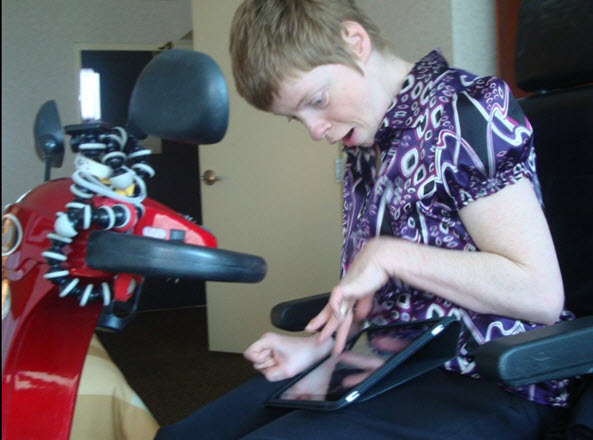 As an individual with a significant speech impairment, I have experienced inequitable treatment in countless ways. The most impactful have been in the areas of employment and healthcare.
As an individual with a significant speech impairment, I have experienced inequitable treatment in countless ways. The most impactful have been in the areas of employment and healthcare.
It still irks a back corner of my mind that I am unemployed and surviving on social assistance because I couldn’t find an employer willing to look beyond my jerky movements and difficult-to-understand speech to give my abilities and skills a chance. Actually, it sucks the chocolate chip right out of my cookie that after five years at high school and seven years at university, working hard to keep up (and sometimes surpass) my classmates and friends, only to watch them land jobs with decent salaries, Christmas bonuses and pension plans while I’m still stuck on social assistance, labeled as unemployable. I have no doubt that my speech impairment played a huge role in acquiring that employment status, but proving it is a different matter. After all, that would have been social injustice. Discrimination, which is illegal.
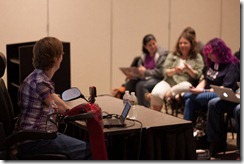
Thankfully, i have found other ways to put my skills, talents and passion to use, in service of others. With perseverance and current technology, I have found a way to become a motivational speaker to share my message with audiences. (I love the irony here!)
I remain confident that my rightful compensation will eventually find its way into my bank account. And, after all of these years of un- and under-employment, that will be one juicy Christmas bonus when it finally does come.
Being self employed, I have been fortunate to surround myself with people who believe in me and who know I am capable and have much to offer. For example, in the next few weeks, I have a couple of podcast interviews. These solopreneurs are willing to give me and the technology a shot in order to share my experience, my story with their audiences.
Unfortunately, I do not have that same latitude in surrounding myself with people who believe in me when it comes to my healthcare. Oftentimes I need to deal with healthcare professionals as they come; I have very little choice. And, frankly, these “professionals†have no clue when it comes to interacting with an individual with a speech impairment or, for that matter, any disability. (Again, the irony.)
As one example (of many): on one trip to the Emergency Room when I had badly injured my foot, the nurse indicated that my husband Darrell had to go back to the waiting room because there wasn’t enough space for both of our wheelchairs.
Darrell explained that I needed him for communication purposes. But, once he relayed how the injury occurred and other necessary medical details, he was told to leave. The nurse assured him that she would come get him if he was needed. None of the other patients’ companions were forced to leave.
In that moment I wondered what were my patient’s rights. Patients who are Deaf wouldn’t (or shouldn’t) be denied access to an interpreter. Non-English speaking patients requiring a translator would definitely not be denied one; that would hit the news for sure.
Yet, I, with a significant speech impairment, was denied my means of communication. Darrell did hand me my iPad before leaving, just in case, but I wasn’t sure I could coherently type because I was in so much pain.
In this instance, I was suffering from only an injured foot. What if it had been serious or, even, life threatening? Would I have been still denied my means of communication? When my well-being or life is at stake, that is social injustice!
This needs to stop. Now. People’s well-being and lives are at stake.
 For this reason and many others, Communication Disabilities Access Canada (CDAC) is launching a 2.5-year national project Communication Access Now (CAN) to promote communication accessibility for people who have speech and language disabilities.
For this reason and many others, Communication Disabilities Access Canada (CDAC) is launching a 2.5-year national project Communication Access Now (CAN) to promote communication accessibility for people who have speech and language disabilities.
How can you become involved?
Check out the education and resources about making goods and services accessible to people with communication disabilities. Like them on Facebook and follow them on Twitter.
If you are in Vancouver, BC, on Monday, March 17th, please join us for the Communication Access Now event – an information session and a rallying of the people. To be held at the Creekside Community Recreation Centre, 1:00-3:00pm.
“We’re not gonna take it anymore.â€
Our voices will be heard. Our voices need to be heard.
To keep up with my adventures, musings and insights, be sure to subscribe to DoItMyselfBlog.com.
If you enjoyed this post, consider buying me a chai tea latte. Thanks kindly.

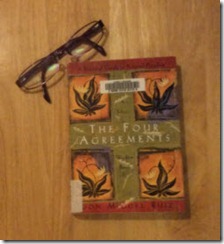 With headaches so painful I felt like I would puke, an optometrist appointment was reluctantly made.
With headaches so painful I felt like I would puke, an optometrist appointment was reluctantly made. 
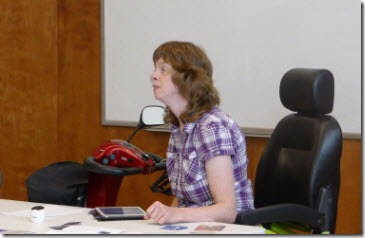
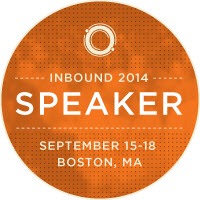
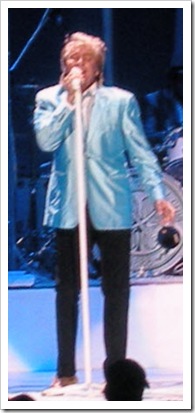 Over the years, various songs have been anthems or theme songs for my life. These tunes either mark milestones or help me navigate something I am going through.
Over the years, various songs have been anthems or theme songs for my life. These tunes either mark milestones or help me navigate something I am going through. 
 As an individual with a significant speech impairment, I have experienced inequitable treatment in countless ways. The most impactful have been in the areas of employment and healthcare.
As an individual with a significant speech impairment, I have experienced inequitable treatment in countless ways. The most impactful have been in the areas of employment and healthcare. 
 For this reason and many others, Communication Disabilities Access Canada (CDAC) is launching a 2.5-year national project
For this reason and many others, Communication Disabilities Access Canada (CDAC) is launching a 2.5-year national project  Subscribe via RSS
Subscribe via RSS



